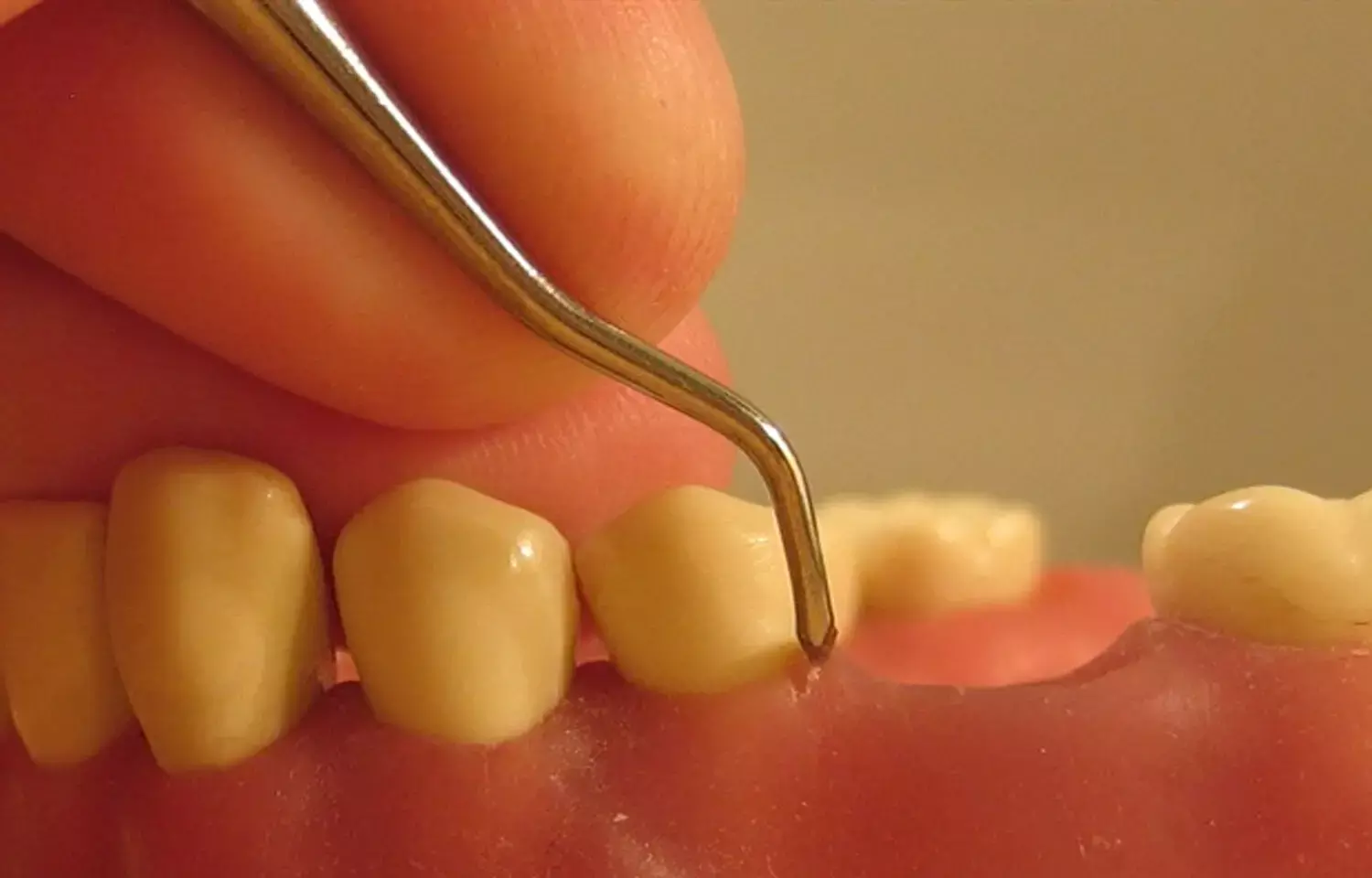- Home
- Medical news & Guidelines
- Anesthesiology
- Cardiology and CTVS
- Critical Care
- Dentistry
- Dermatology
- Diabetes and Endocrinology
- ENT
- Gastroenterology
- Medicine
- Nephrology
- Neurology
- Obstretics-Gynaecology
- Oncology
- Ophthalmology
- Orthopaedics
- Pediatrics-Neonatology
- Psychiatry
- Pulmonology
- Radiology
- Surgery
- Urology
- Laboratory Medicine
- Diet
- Nursing
- Paramedical
- Physiotherapy
- Health news
- Fact Check
- Bone Health Fact Check
- Brain Health Fact Check
- Cancer Related Fact Check
- Child Care Fact Check
- Dental and oral health fact check
- Diabetes and metabolic health fact check
- Diet and Nutrition Fact Check
- Eye and ENT Care Fact Check
- Fitness fact check
- Gut health fact check
- Heart health fact check
- Kidney health fact check
- Medical education fact check
- Men's health fact check
- Respiratory fact check
- Skin and hair care fact check
- Vaccine and Immunization fact check
- Women's health fact check
- AYUSH
- State News
- Andaman and Nicobar Islands
- Andhra Pradesh
- Arunachal Pradesh
- Assam
- Bihar
- Chandigarh
- Chattisgarh
- Dadra and Nagar Haveli
- Daman and Diu
- Delhi
- Goa
- Gujarat
- Haryana
- Himachal Pradesh
- Jammu & Kashmir
- Jharkhand
- Karnataka
- Kerala
- Ladakh
- Lakshadweep
- Madhya Pradesh
- Maharashtra
- Manipur
- Meghalaya
- Mizoram
- Nagaland
- Odisha
- Puducherry
- Punjab
- Rajasthan
- Sikkim
- Tamil Nadu
- Telangana
- Tripura
- Uttar Pradesh
- Uttrakhand
- West Bengal
- Medical Education
- Industry
Periodontitis strongly associated with premature birth, Finds study

According to recent research, it has been studied that periodontitis is associated with a six-fold increase in the risk of premature birth.
The study is published in the BMC Pregnancy and Childbirth.
Premature delivery is among the leading causes of perinatal mortality and morbidity in developed societies, which is an important obstetrics problem. Maternal periodontitis is a prevalent condition that has been suspected to be associated with adverse pregnancy outcomes such as premature birth.
However, there are still conflicting results about this possible relationship, therefore, Peace Uwambaye and colleagues from the Department of Preventive & Community Dentistry, University of Rwanda College of Medicine and Health Sciences, School of Dentistry, Kigali, Rwanda conducted the present study to test the association between maternal periodontitis and premature birth.
The authors also provided information about a new screening tool recommended for use by nurses and midwives to screen for periodontal diseases during antenatal consultations in order to improve the health of mothers and children.
A retrospective case-control study was conducted at 12 health facilities in the Southern Province of Rwanda. A total of 555 women in the postpartum period were enrolled in the study. Cases and controls were enrolled in a ratio of 1:2; each enrolled case of preterm birth was followed by 2 unmatched control subjects that were next on the register and who delivered at term gestation.
A total of 185 cases of preterm deliveries and 370 controls of term delivery were enrolled in the study. Multivariate regression analysis was used and the independent variables were hierarchically entered in three groups: The first group involved demographic variables that were put in the regression model as Step 1. The second group was made up of other potential risk factors that were placed in the regression model as the second step. Periodontitis was entered in the final regression step, as it was hypothesized as the main predictor variable.
The results showed that there is a statistically significant association between periodontitis and premature birth. It was also found out that women who had periodontitis had 6 times the odds of giving birth to premature birth infants compared to women who had no periodontitis (OR: 6.360, 95% CI 3.9, 10.4).
Therefore, it was concluded that "periodontitis is strongly associated with premature birth. Preventive solutions including the use of a periodontitis screening tool for nurses and midwives during antenatal care consultations, are highly recommended."
Dr. Nandita Mohan is a practicing pediatric dentist with more than 5 years of clinical work experience. Along with this, she is equally interested in keeping herself up to date about the latest developments in the field of medicine and dentistry which is the driving force for her to be in association with Medical Dialogues. She also has her name attached with many publications; both national and international. She has pursued her BDS from Rajiv Gandhi University of Health Sciences, Bangalore and later went to enter her dream specialty (MDS) in the Department of Pedodontics and Preventive Dentistry from Pt. B.D. Sharma University of Health Sciences. Through all the years of experience, her core interest in learning something new has never stopped. She can be contacted at editorial@medicaldialogues.in. Contact no. 011-43720751
Dr Kamal Kant Kohli-MBBS, DTCD- a chest specialist with more than 30 years of practice and a flair for writing clinical articles, Dr Kamal Kant Kohli joined Medical Dialogues as a Chief Editor of Medical News. Besides writing articles, as an editor, he proofreads and verifies all the medical content published on Medical Dialogues including those coming from journals, studies,medical conferences,guidelines etc. Email: drkohli@medicaldialogues.in. Contact no. 011-43720751


